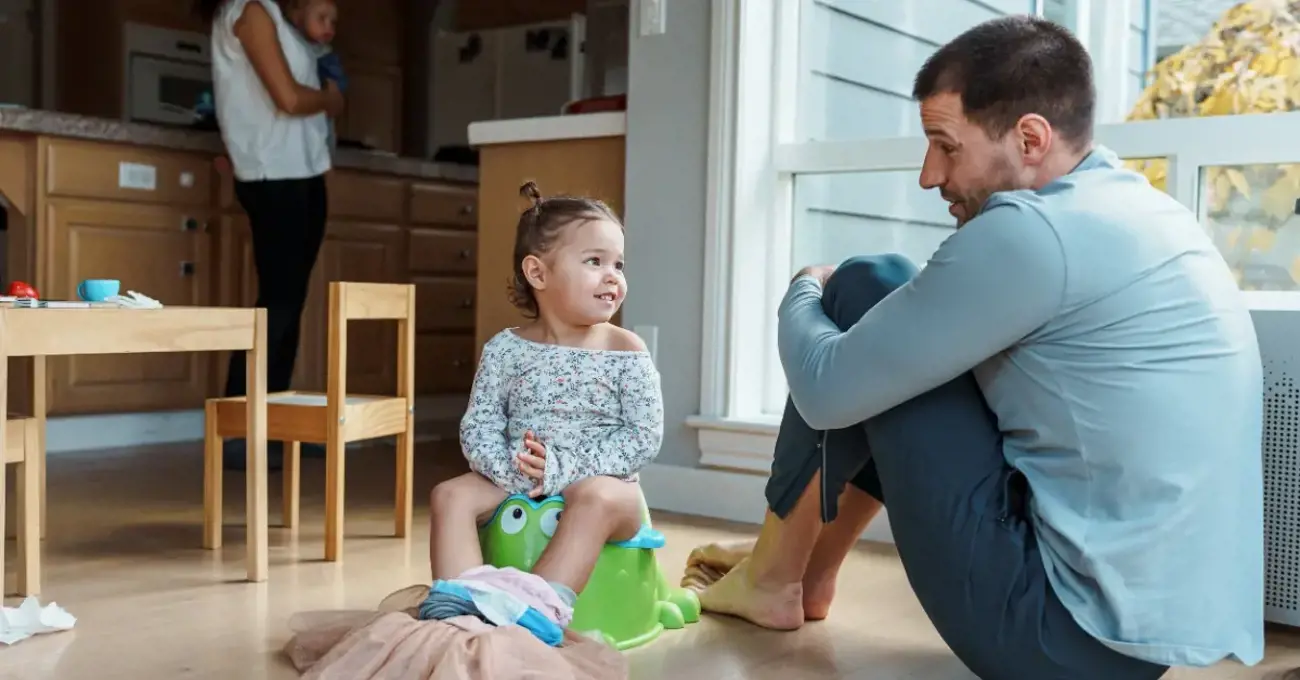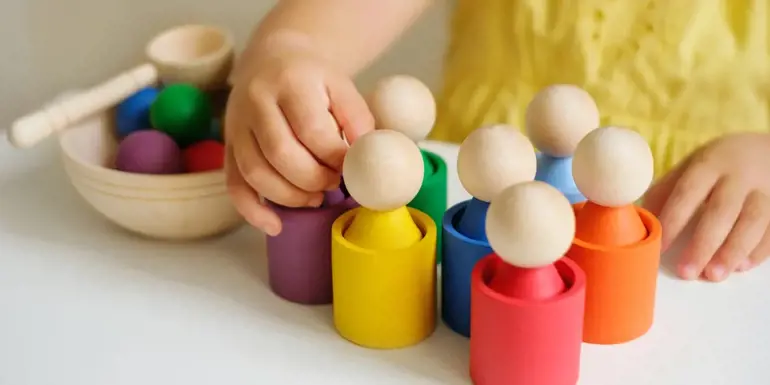Toilet training often seems like a pretty daunting task, but you're simply teaching your child a new life skill, much like teaching your child to dress themselves.
Perhaps it's the word ‘training' that makes it sound a bit ominous (after all, 'dressing training' sounds more daunting than teaching your child to dress themselves, doesn't it!) Yet in spite of how it sounds, you are simply teaching your child when and how to use the toilet. And the key to teaching these skills is making sure your child is ready to start potty training.
So how do you know your child is ready?
Signs of readiness include:
- an interest in toileting
- an ability to tell you with either words or gestures that they're about to, or are doing a poo or wee in their nappy
- being dry for longer periods, eg. waking up dry after their daytime nap
- being able to walk to and from the toilet and to pull their own pants up and down
- the ability to cooperate with your instructions
- the intrinsic motivation to tackle a new, 'big kid' challenge
The age at which children reach these signs of readiness will differ. Most children will be ready for the toilet training process at age two. Other parents delay toilet training until their kids are three and a half. And that's okay. There's no point teaching your child to do something that they're not ready to learn. Instead, you'll have much more success once you plan toilet training when your child is both interested and able.
As you approach when to start toilet training your child, here are a few toilet training tips to keep in mind:
Recognising When to Start Toilet Training
However ready your child might be, don't start toilet training just before an epic road trip or a big life event - like a house move or the birth of a new baby sibling. It might be a good idea to also check in with your child's educator to make sure there aren't any big room or staffing changes coming up. Assume that things will be wobbly for your toddler as they adjust to these big changes and that any progress you've made will likely to be lost for a while.
Preparing Your Child for Toilet Training
Prepare your child before you start. Ask them if they'd like to start using the big toilet seat like you do? Let them investigate how the toilet works - where you sit and how to use the flush button; This might involve letting your child watch you on the toilet (but let's be real - you're probably used to that already!) Check out the toilets in their childcare centre too. There are also lots of picture books written on this subject, so consider borrowing some of these together from your local library.
Establishing a Toilet Training Routine
Once your child is ready to potty train, some parents plan for a few play-at-home ‘clothing optional' (aka nudie) days or use disposable training pants (or cloth training pants) to help ease the transition. If your living arrangements and climate allow for this option, this can be useful since there are fewer obstacles in the way when your child suddenly feels the urge to go.
Others will have their child dressed in underpants at home but in nappies out of the house for a little while (otherwise car trips and visits to the shopping centre can become a little stressful). And some parents are happy for their child to wear underpants all the time, even while out and about, as they conquer this new learning task.
It's important to collaborate with your child's educator at this stage too. Ask their preference for either undies or nappies while your child is in their care and be sure to pack some spare clothes in case of accidents. Your two main teaching tasks at this stage are (1) encouraging your child to notice when their body tells them it's time to go and (2) the task of toileting, that is, teaching your child to use the existing toilet seat, to wipe themselves, to flush and to wash their hands - all of which will initially require your help and supervision. During this learning stage, keep checking in with your child's educator, so that your child can experience consistent teaching in both their home and childcare centre.
Dealing with Potty Training Setbacks: Stay Positive and Patient
Lastly, anticipate that your child will have accidents. No-one learns to walk without falling. There will be times when your child is so absorbed in their play that they miss the signs. The key with handling these mistakes is to avoid getting cranky or making your child feel bad when this happens. When we do react negatively, there's a risk our kids will want to retreat back into the safety of their nappies. Kids can become scared of toileting, causing them to hold on and become constipated, which can then make the process painful and more challenging. If they fear your reaction, children can also try to hide their mistakes, pooing behind toy boxes or curtains. It's far more helpful to remain reassuring and encouraging. Say, ‘That's okay. I had to learn to use the toilet when I was your age and I sometimes had accidents too. Everyone does. We'll just try again next time.”
Sometimes when you toilet train, it might seem like your child is taking ‘two steps forward, one step back'. It might be slow. It will more than likely be messy. But as with teaching all skills that promote children's independence, it will most certainly be worth it.
Dr Kaylene Henderson is a highly trained and sought after Child Psychiatrist and parenting expert. Based in Queensland, she dedicates her time and knowledge to a wide audience of parents, educators and corporate groups while raising three gorgeous kids of her own.



































